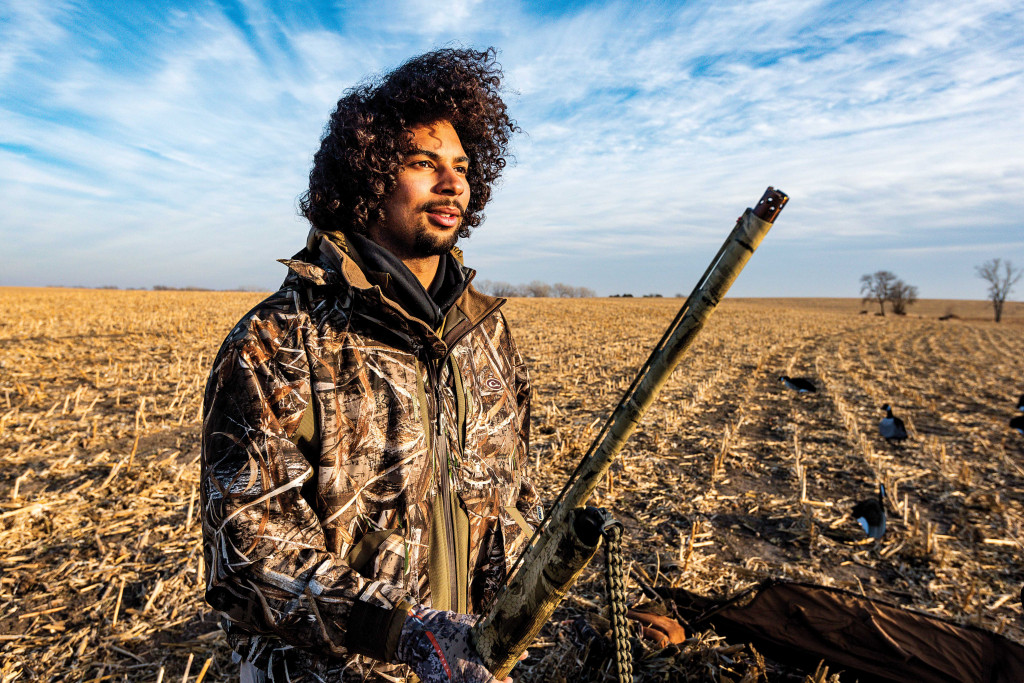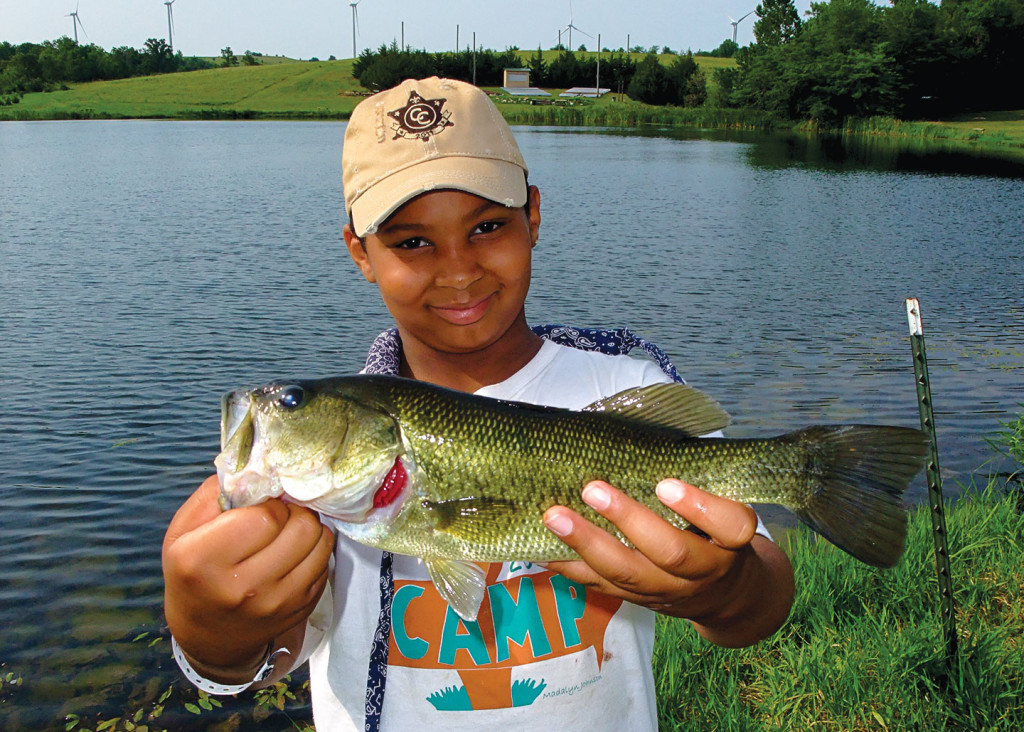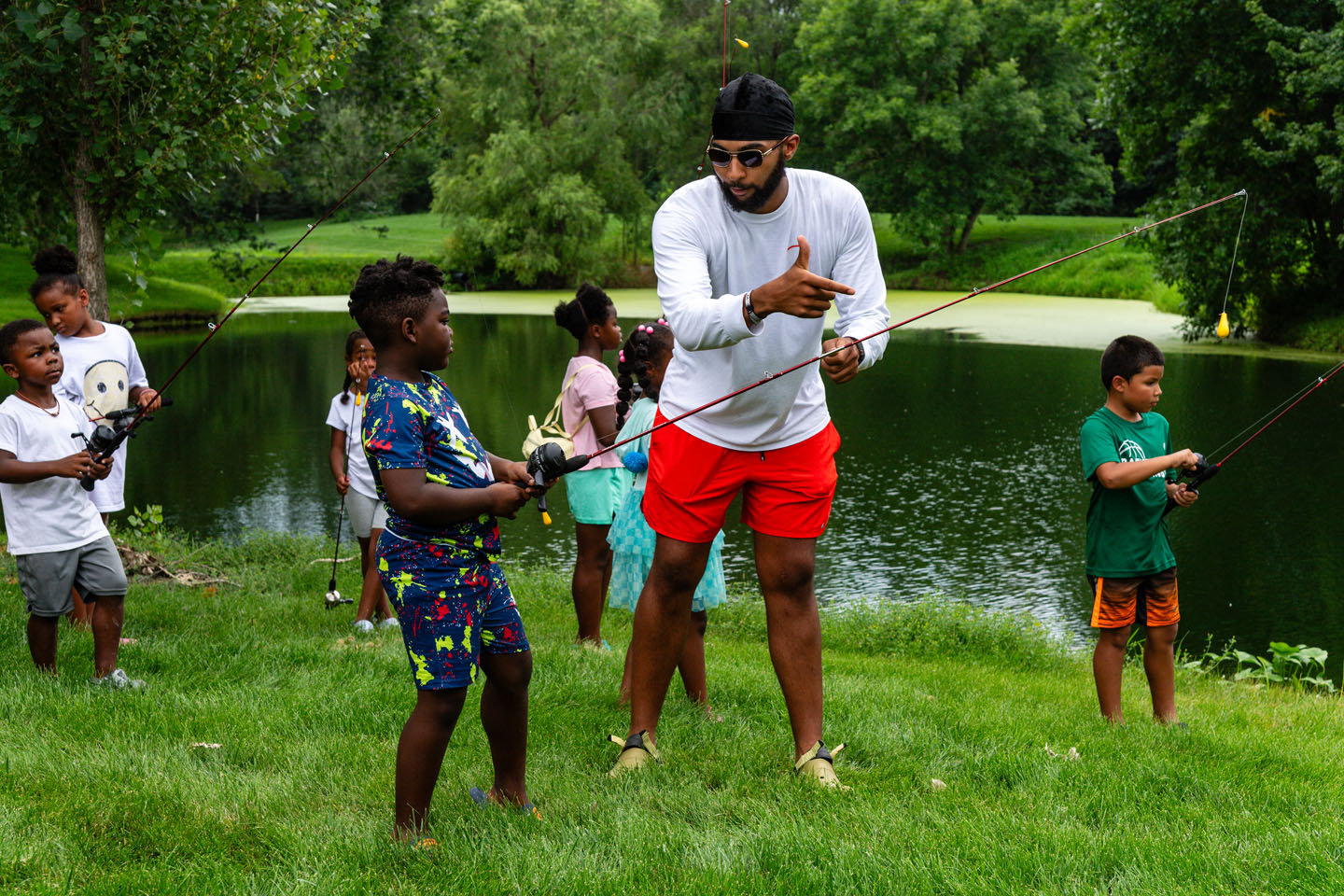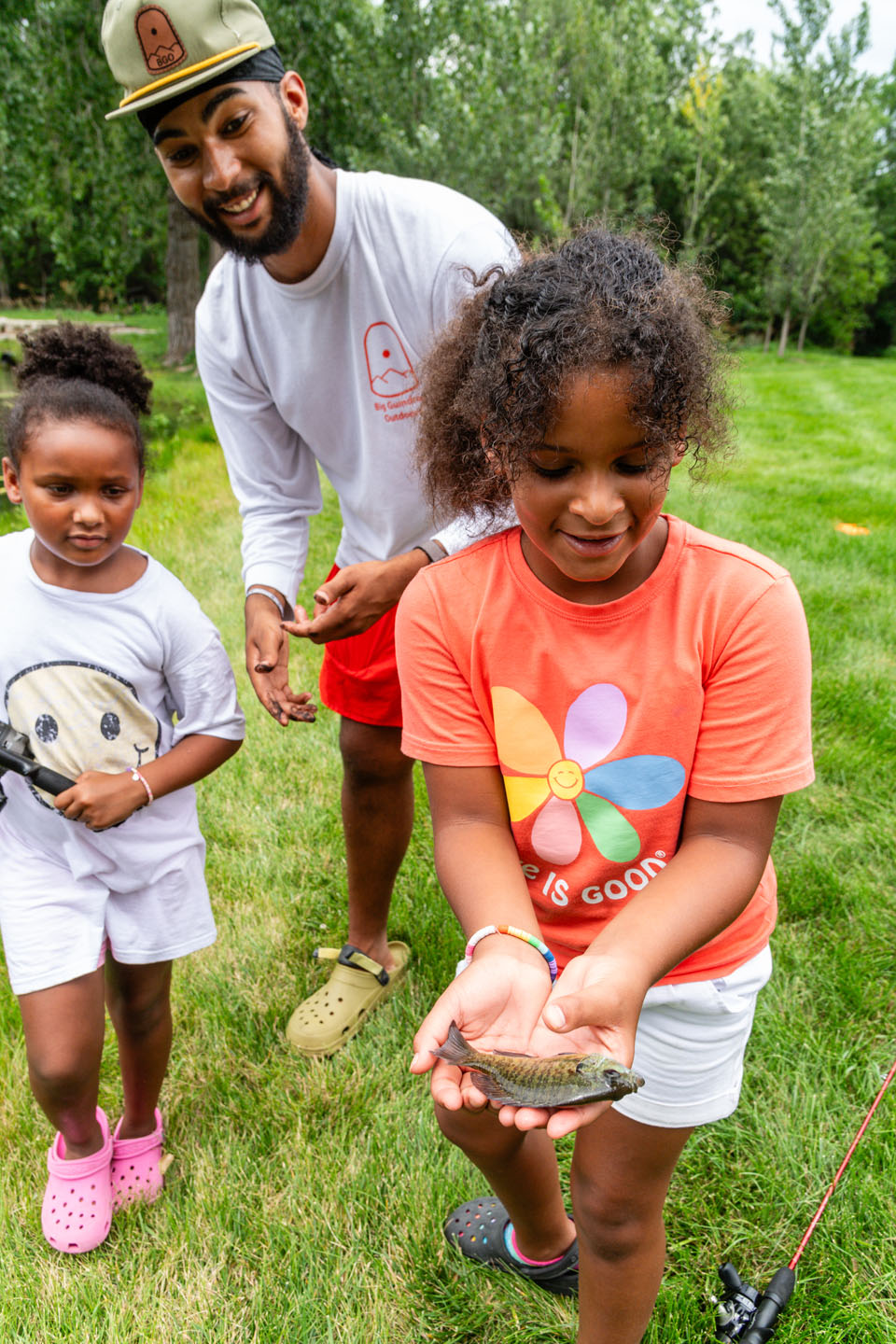
By Eric Fowler
Some people live their entire lives searching for some place, any place, where they feel comfortable. It didn’t take Elijah Riley that long. Late in high school, when he picked up a bow and arrow and headed to the woods, is when he knew.
“I felt like for a long time I didn’t know my place in the world,” said Riley, soon to be a senior at the University of Nebraska-Lincoln, “but getting back in nature has helped me find that.”
And a whole lot more.
Introductions and Reintroductions
While growing up fishing and camping with his family near Lincoln, Riley remembers how his dad would announce, “We got groceries,” when they left the lake with a stringer full of channel catfish in hand.
“I never really put two and two together on what ‘groceries’ meant until I was older,” Riley said. “We were putting food in the fridge.”

He learned more outdoor skills in Cub Scouts, from building a campfire to paddling a canoe. He feverishly watched YouTube and outdoor reality shows on the History and Discovery channels. Swamp People was a favorite of his.
“I was wanting to do everything I was watching and thinking that was the coolest thing in the world,” he said. He fished often in middle school and walked more than one patch of tallgrass looking for pheasants, thrilled by the hunt despite never downing a bird.
Then, like time is for many teenagers and young adults, the outdoors took a backseat to Riley’s everyday life. Most of his high school years were filled with studies and sports until multiple knee injuries — and the subsequent recoveries — halted his playing career. Competing on the Lincoln High trap team his junior year, participating in Cornhusker Boys State and a job at Scheels introduced him to people who knew much more about hunting and fishing than him. Some of those people became mentors, sharing their knowledge and pulling him back in.
Riley bought a used bow on an online marketplace and had many unsuccessful deer hunts on public land near Lincoln. Still, he was hooked.
“I think it was how much time I spent in the woods with nothing happening,” Riley said. “There were a lot of times where it was just anticipation, and every time a squirrel would bark or run up and down a tree, I’d think it was a deer, and I would start getting the shakes.”

Seeing his passion, an uncle who had quit deer hunting took Riley under his wing and guided him on a rifle hunt that ended in his first deer. “The feeling I had once I was down on the ground with that deer was the most surreal and overtaking feeling I think I have ever had,” he said.
He has since hunted, fished and backcountry camped in several states, and he even fished in Costa Rica. “I would say the biggest reason I like these things and engage in them is I get a surreal feeling in myself, just like peace and calmness, when I’m in nature. It’s a good chance to reset and just find yourself in the world again.”
Big Gumdrop Outdoors
One day in high school, Riley and his friends were sitting in class giving each other goofy nicknames. “Shorter and fluffier” than he is today, his friends tabbed him with Big Gumdrop, a name that stuck.
In 2019, Riley began Big Gumdrop Outdoors, posting videos of his hunting and fishing exploits on YouTube, TikTok and Instagram. “I had the idea, the vision, that I’m creating this stuff so other kids who look like me are able to see someone that’s in the industry and doing it, and they feel comfortable and confident to go out and do it themselves,” he said.
However, Riley had little engagement to his videos. So, in 2023 he pivoted to hands-on education. Riley and other members of the Minorities in Agriculture, Natural Resources and Related Sciences club at UNL had worked with the Malone Community Center in Lincoln on a series of educational sessions, including wildlife identification and calls, ecosystems and agriculture. Staff asked if they could do more, and when Riley returned from studying abroad in Costa Rica in 2023, he developed an eight-week summer program.

With the help of friends and Malone staff, kids learned about wildlife, the food chain, ecosystems in Nebraska and conservation storytelling. They learned about camping and took a field trip to set up tents, build a fire and make s’mores. They helped clean up trash around Holmes Lake. And they learned about fishing, later taking another field trip to a private pond near Lincoln where every kid who went caught a fish. During the spring semester, he worked with the Lincoln Community Learning Center to put on after-school programs at three Lincoln schools.
Riley is working with the Malone Center again this summer. “We have a lot of kids who love going outside and love being outdoors but don’t really have the education or the parental guidance to learn or experience what is right in their backyard of Lincoln,” said Cristian Clinton, youth supervisor at the center.
“Elijah loves doing what he does. He does great with the kids. He takes his time with the lesson plans, so being able to see that and then see the kids gravitate toward the lessons and the things that he’s teaching them is just something that we loved and want to continue doing here at the Malone Center. He’s left a lasting impression on some of our kids for sure.”
Next Steps
Riley is working to establish a nonprofit through which he will deliver these environmental education programs, and he has even grander aspirations. He hopes within three years he can have the program in every elementary, middle and high school in Lincoln, and that some of the younger students who participate will become mentors when they get older. From there, he hopes to expand to schools in Omaha and beyond. Eventually, he hopes the program will grow to the point that it can be his full-time job — his career.
His enjoyment of the outdoors and the pleasure of seeing kids enjoy his programs are what drives him. That was evident during a fishing trip he took with the Malone Center students last summer, when all 14 kids caught a fish, most of them their first. Riley, with the help of fellow UNL students, managed the chaos with patience and ease.
“It was just so much fun to see their excitement,” Riley said. “That right there reminded me of all those times when I was a kid, catching fish with my dad and just being on the highest level, on cloud nine, just excited. And seeing those kids go through that same thing re-sparked those emotions, and it makes me happy.”
A Lasting Impact
Hunters and anglers are predominantly white, making up more than 77 and 75 percent of the participants, respectively. African Americans make up 11 percent of hunters and anglers nationally. Just 4 percent of African Americans hunt and 12 percent fish, compared to 6 percent and 17 percent of whites. Participation among Hispanics also trails whites, while a greater proportion of Asian Americans hunt and fish.
Elijah Riley’s work could help change those numbers in Nebraska. But even if it doesn’t, it will make a lasting impact for those he’s teaching and mentoring.
